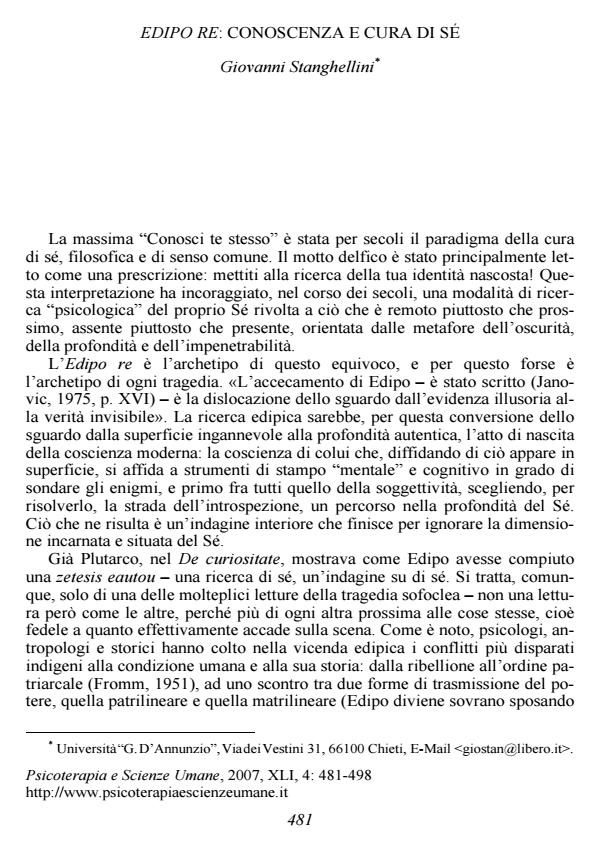Edipo Re: conoscenza e cura di sé
Journal title PSICOTERAPIA E SCIENZE UMANE
Author/s Giovanni Stanghellini
Publishing Year 2007 Issue 2007/4
Language Italian Pages 18 P. 481-498 File size 151 KB
DOI
DOI is like a bar code for intellectual property: to have more infomation
click here
Below, you can see the article first page
If you want to buy this article in PDF format, you can do it, following the instructions to buy download credits

FrancoAngeli is member of Publishers International Linking Association, Inc (PILA), a not-for-profit association which run the CrossRef service enabling links to and from online scholarly content.
Oedipus King has been interpreted as a story characterized by the manifestation of some truth deeply hidden. It is suggested that it tells us about the disintegration and reintegration of different modes of selfawareness: vision, feeling, and story-telling. A series of antinomies come on stage: search versus care of oneself, reflexive knowledge versus familiarity with oneself, external vision versus acquaintance with oneself. The first element of these pairs overshadows the second. Vision rules, with its objectifying power; feeling turns out to be mere intimation, an unarticulated form of knowledge. The integration between seeing and feeling is established in Oedipus King through narratives. Oedipus succeeds in getting in touch with himself only via the stories others tell about his life. The healing value of the dramatic action consists in the narrative process breaking the vicious circle between the dominance of vision and the lack of feeling. [KEY WORDS: self-knowledge, self-awareness, care of oneself, Oedipus, narrative]
Giovanni Stanghellini, Edipo Re: conoscenza e cura di sé in "PSICOTERAPIA E SCIENZE UMANE" 4/2007, pp 481-498, DOI: